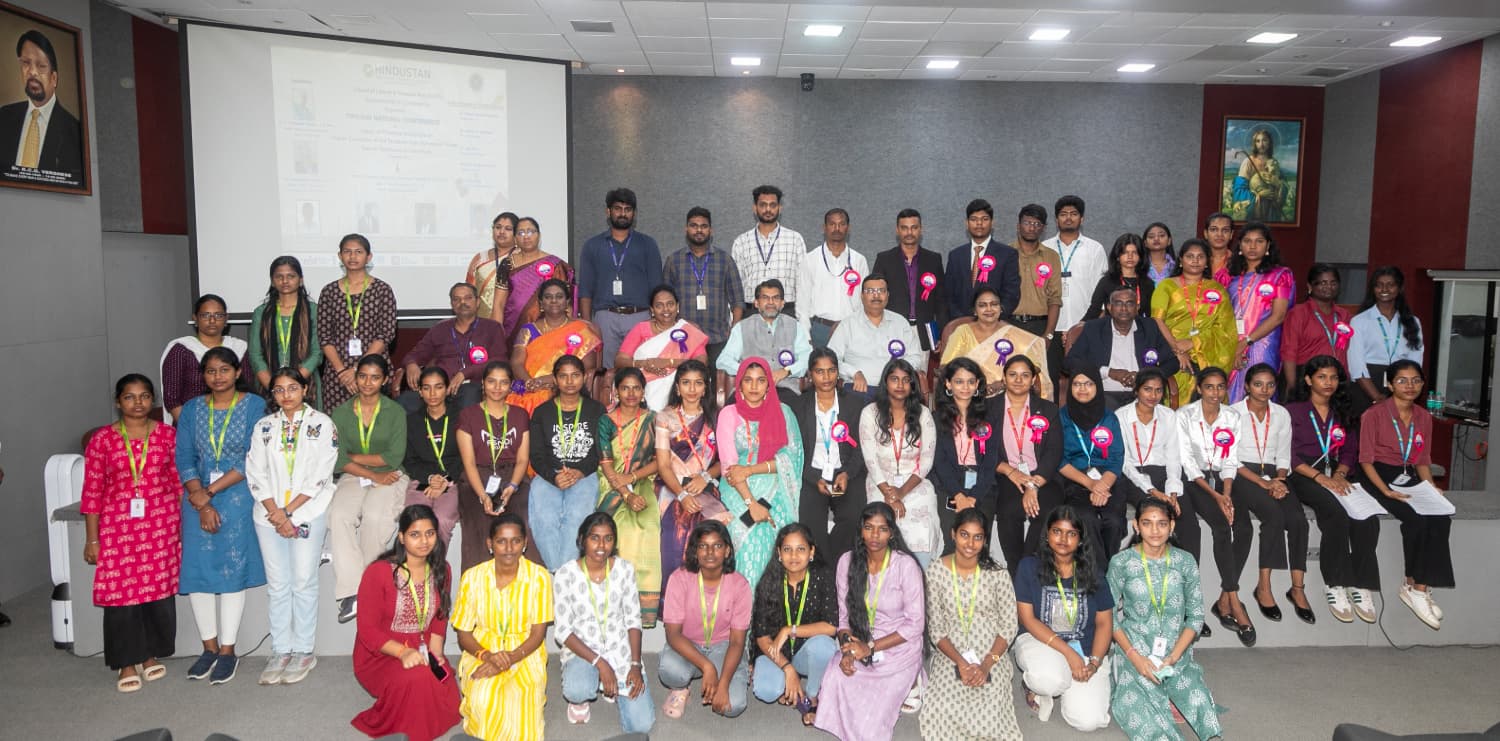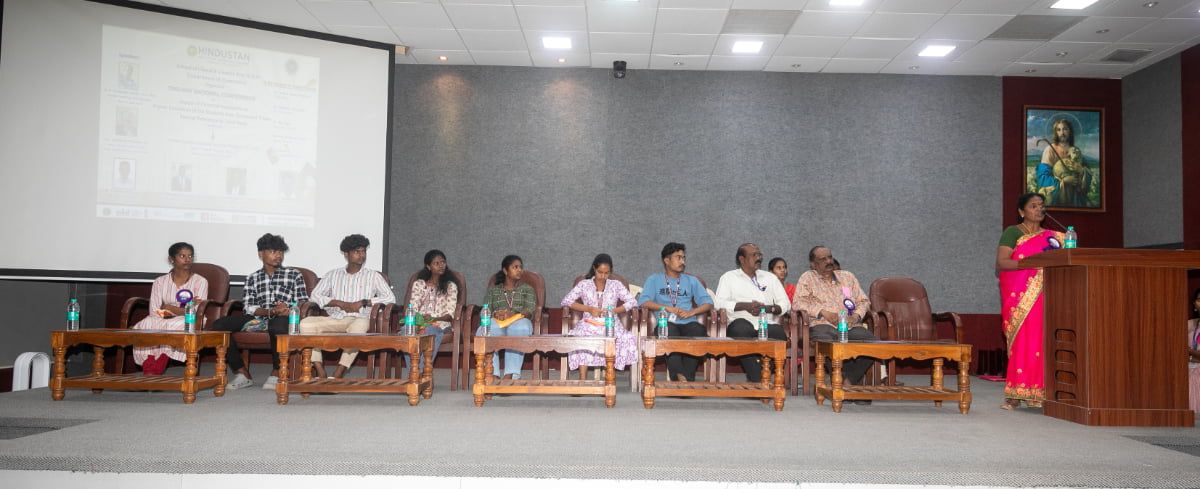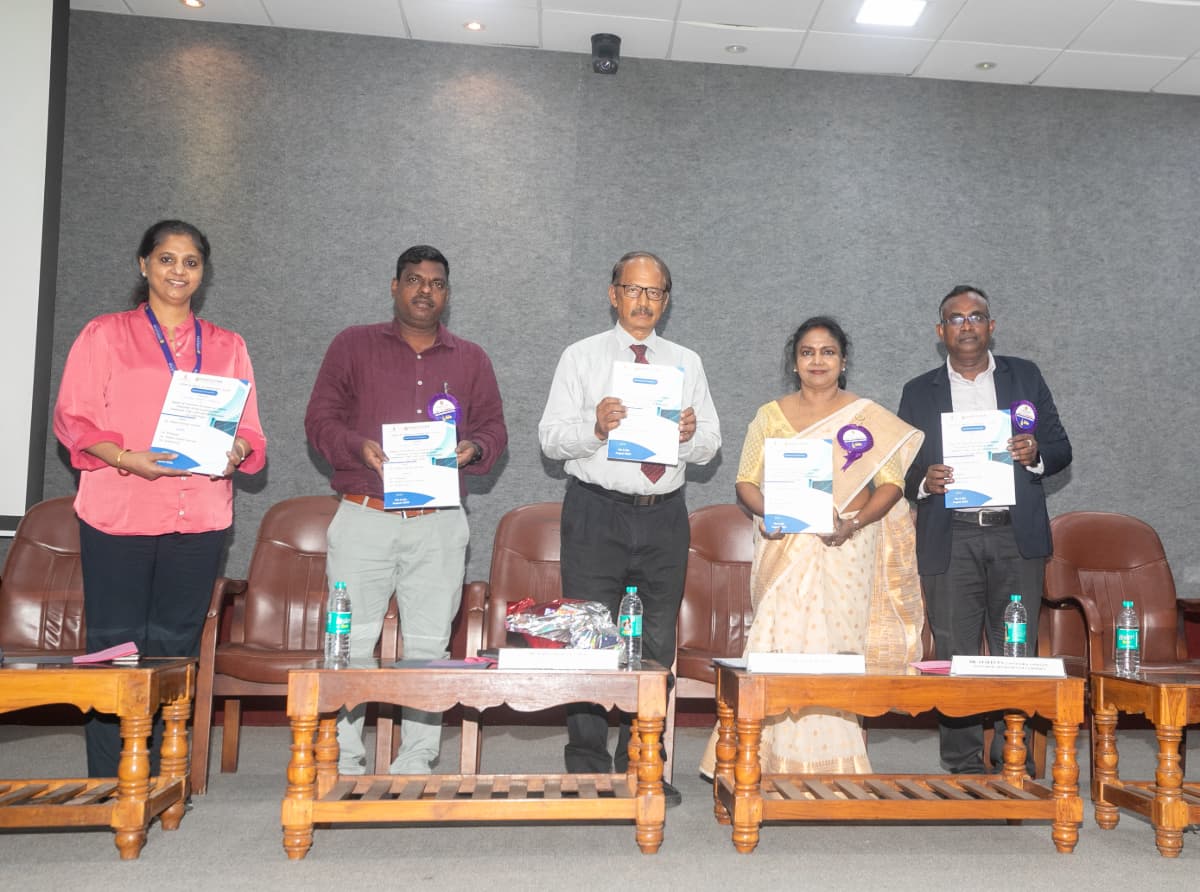-
- Back
-
- Back
-
- Back
-
- Back
-
- Back
-
- Back
-
- Back
-
- Back
National Conference on Impact of Financial Inclusions on Higher Education of The Students from Scheduled Tribes
National Conference on Impact of Financial Inclusions on Higher Education of The Students from Scheduled Tribes

National Conference on Impact of Financial Inclusions on Higher Education of The Students from Scheduled Tribes
Two-Day National Conference on Impact of Financial Inclusions on Higher Education of The Students from Scheduled Tribes: Special Reference to Tamil Nadu | Date: 07-08 August 2025
A two-day national conference was conducted on “Impact of Financial Inclusions on Higher Education of the Students from Scheduled Tribe: with Special Reference to Tamil Nadu” by Department of Commerce, School of Liberal and Creative Arts, at Hindustan Institute of Technology and Science, Chennai and sponsored by Indian Council of Social Science Research (ICSSR), New Delhi. The Conference was held on 07-08 August 2025with the objective to provide a platform for knowledge acquisition and dissemination on intersection between financial accessibility and higher education opportunities for Scheduled Tribe (ST) students and to facilitate insightful discussions among the delegates.
The distinguished keynote speakers and guests from schedule tribes were invited to share their expert insights and scholarly contributions that enriched the deliberations during the conference. Dr. R. Christodas Gandhi, I.A.S (Rtd), Former Additional Chief Secretary of Tamil Nadu, Thiru. Sajjansingh R Chavan, I.A.S, Special Secretary to Government, Public Department, Govt. of Tamil Nadu, Dr. M. Rajaram IAS, Former Principal Secretary, Tamil Nadu, Dr. Prince Solomon, Assistant Professor, Dept. of Social work, MCC-Chennai, Dr. Udhayakumar, Senior Lecturer, Cultural Anthropologist, Department of Tribal Welfare, Govt. of Tamil Nadu, Dr. V. Sivasankar, Professor, Department of Economics, Pondicherry University, Pondicherry were the resource persons.
A total of 100 delegates from various universities and colleges participated and presented their research articles. A group discussion and case study with tribal students (12 Students and 8 Tribal official representatives) brought out the unique challenges and barriers they face in accessing and succeeding in education, including issues related to poverty, cultural differences, and lack of resources. These discussions explored ways to improve educational outcomes for tribal students, such as culturally relevant curriculum, increased access to technology and resources, and addressing dropout rates.



